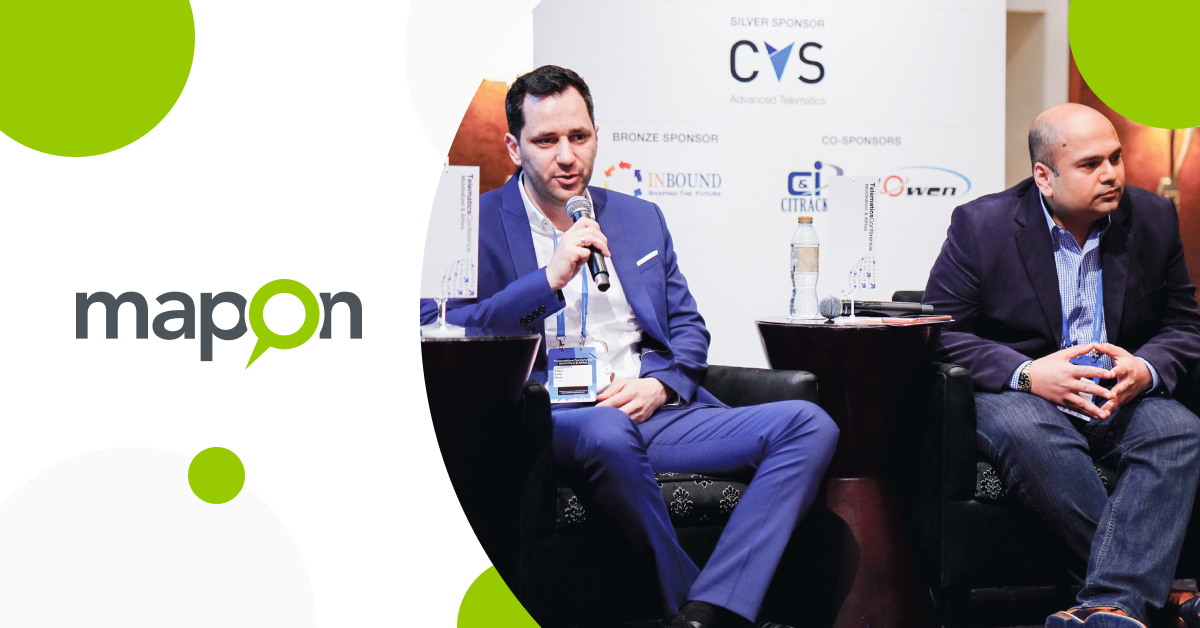Mapon sharing company expertise on the advanced telematics in Dubai
On the March 28, Mapon team participated in Telematics Conference Middle East & Africa in Dubai. Advanced telematics was one of the main topics of the event and our Co-CEO took part in a panel discussion on the same subject – “The increasing need for advanced telematics”.
The whole experience of the conference made us think of how to define what advanced telematics is.
Mapon has been in the market for over 13 years. Today we still remember the old days when we educated our customers about the telematics in general and the fact that you can see your vehicle’s real-time position on a map was greeted with a “wow”.
As time went, customers were requesting more features to manage their fleets. Moreover, new regulations came into force and more data was being collected. In fact, if we compare the amount of data collection today and 10 years ago, the difference is breathtaking.
We have options to read a wide range of sensors, both wired and wireless, do integrations with standalone external equipment and control it remotely, view video live streams and much more. But what makes the telematics advanced? Is it just the features and the collected data, or is there something else that makes the difference?
At the discussion, one of the questions to Mapon was about what we can offer for the Middle East region in terms of advanced telematics? The question makes you think about what impressive features does Mapon have for the region. However, we believe that the right answer lies in understanding what advanced telematics actually is. If we’d have to use just one word to describe advanced telematics, we’d say collaboration. Collaboration between the telematics service provider and the customer.
As soon as you take the features off the table and start thinking about collaboration, you get to know and understand your customer, you start to analyse their business processes and educate them on how can they use your platform to solve their problems.
We can collect whatever data we want, but if we’re not helping our customers to make decisions, there’s no point in collecting that data in the first place.
Let us share an example with you! There’s a customer that is currently using a basic track and trace solution and willing to understand whether his fleet is used efficiently. If a telematics solution provider is only collecting data and displaying routes on the map, it takes days or even weeks to analyse the data and calculate the fleet efficiency. However, if we look at this from the collaboration perspective, telematics provider should understand this need and provide this information to the customer out of the box. Recently, we launched our fleet efficiency solution and receive great feedback about it!
When talking about collaboration, we should also note that it means that all parties are open to it. Mapon experience shows that when our collaboration with customers is fruitful, the usage of telematics system helps them thrive!




